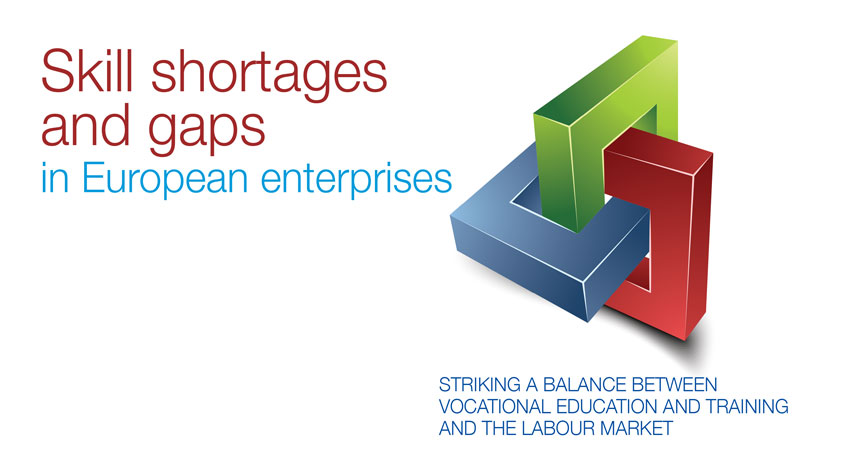Striking a balance between vocational education and training and the labour market
The global crisis has increased unemployment in the EU to unprecedented levels, yet many employers claim they have difficulties finding skilled workers to fill their vacancies. This report shows that most vacancy bottlenecks arise because of factors other than general skill deficits, including job offers of poor quality. Genuine skill shortages affect a small group of dynamic, internationally oriented European enterprises in specific economic sectors (health and social care, ICT, advanced manufacturing).
To mitigate skill bottlenecks, European companies must commit to offering high-quality apprenticeship places and good-quality jobs, which can be supported as part of a process of social dialogue between VET providers and labour market actors. Ultimately, the business and product market strategies of a greater share of European firms will have to become reliant on higher skill needs. The role of VET in developing creativity and entrepreneurial capacity in the European workforce will be crucial.
Download
As read on the Cedefop website.

